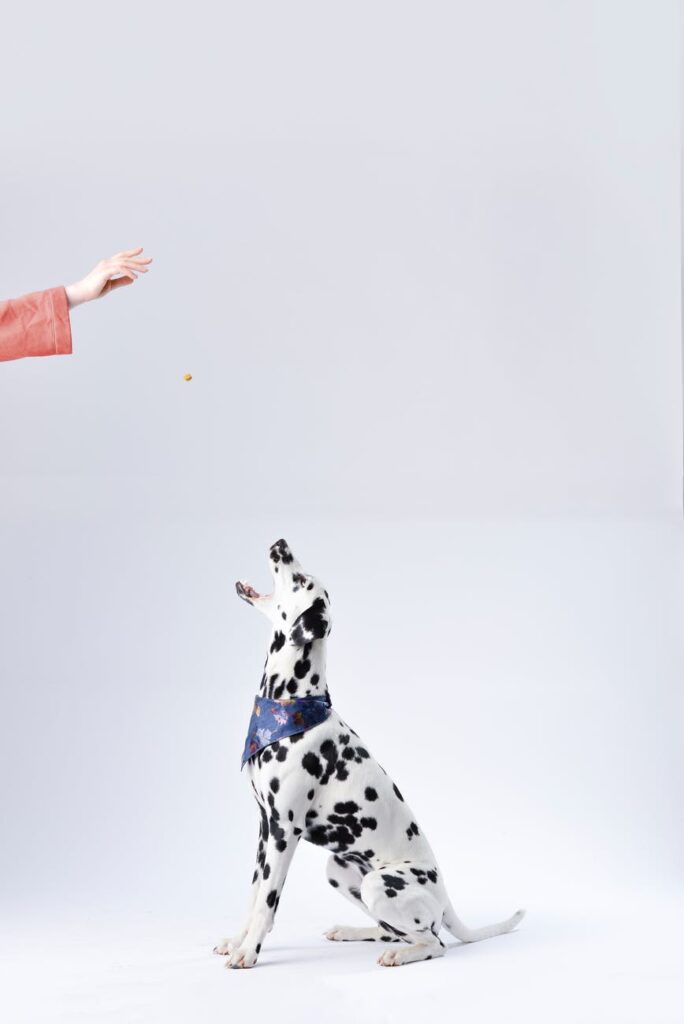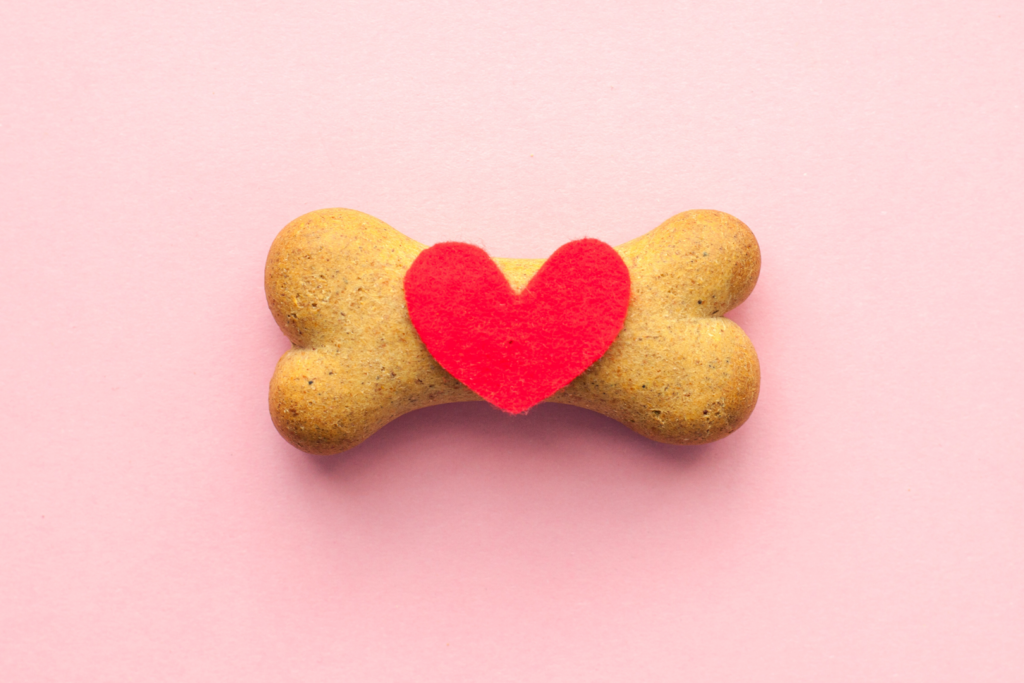How grateful are we for our furry friends this year as Winter rolls into view? Whilst their presence is, of course, always so welcome, with Lockdown 2.0 and the prospect of months spent indoors without company around the corner, the gratitude we’re feeling for our pets is currently at fever pitch.
Treating your dog isn’t simply about showering them with unconditional love whenever that surge of emotion hits, which, frankly, is often. It’s also a great way to reinforce positive behaviour patterns and slip in some extra nutrition, too.
Let’s be honest, here; dogs weren’t always domesticated like they are today. At heart, they’re still pack animals and retain much of their pack-hunting mentality. Much like their ancestors, dogs possess the concept of scarcity, meaning that, to them, food may always feel like a limited resource. That’s why most dogs will eat anything that looks or smells like food, given the opportunity.
This causes a problem: if your dog will eat pretty much anything, how do you know what treats are best to give them? With that in mind, here are the IDEAL treats to keep your dog happy and healthy this winter.
WHAT TREATS SHOULD YOU GIVE TO YOUR DOG?
The dog treat industry is vast, meaning it can be difficult to choose the right treat for yours, with the paradox of choice lurking in every pet shop and on every supermarket shelf with a dedicated animal section. That said, some treats are better for your beloved pooch than others, while some are best avoided altogether.
The best treats will provide your dog with nutrition as well as flavour, contributing to their happiness and health. Just like where the human diet is concerned, the healthiest dog treats are made with natural ingredients and don’t have any additives or preservatives –– these treats will keep your dog satisfied and satiated without causing them to put on unnecessary weight.
The cooking process of the dog food is also important, as minimal processing and lower heat will retain the treat’s nutritional content. Treats that have been heavily processed won’t contain nearly as many nutrients as considerately treated, gently cooked, lightly processed foods.

USING DIFFERENT DOG TREATS FOR DIFFERENT OCCASIONS
Generally speaking and according to the experts, you should use different types of dog treats for different circumstances to help maintain your dog’s balanced diet.
Smaller treats should be used for training and rewarding good behaviour. When training your dog, you’ll be repeating specific actions to encourage them to obey commands and reinforce good behaviour, so using multiple small treats won’t impact your dog’s diet too greatly.
Larger treats should be reserved for stopping your dog from getting too hungry between meals and can be used to keep them occupied during the day. These treats typically contain a higher fat content than regular dog food – though fish-based treats are lower in fat – so their meals should be adjusted accordingly if they’ve had a lot of big treats over the course of the day.
Whatever the situation, be mindful of how many treats you give your dog. Bestowing treats too much or too often could result in an imbalanced diet, which could lead to weight gain and heart problems. Opting for low-fat treats containing fish or lean meat (such as chicken, turkey or lean ground beef) can also help keep your dog’s diet in balance.

HOW CAN I FIND THE BEST DOG TREATS?
Typically, the more expensive and ‘up-market’ brands manufacture treats using a higher quality of ingredient, which is, in turn, more nutritious for your dog. However, this isn’t always the case. A more reliable indicator of quality than price is found in the actual ingredients list.
According to Which, ‘’The British Veterinary Association’s advice is that any commercially manufactured pet food in the UK that meets PFMA (Pet Food Manufacturing Association) guidelines would have complete nutritional requirements for pets’’. As such, be sure to check the list of ingredients in dog treats before making a purchase; it should all be there.
Fish and meat are typically the highest-quality ingredients in dog treats and dog food. Over thousands of years of domestication, dogs have adapted to digest a wider range of foods, including vegetables, fruit, wheat and rice.
Indeed, whether or not they should be classed as omnivores or carnivores is still open for debate. Either way, the bulk of a dog’s nutrition should come from meat or fish, which should be located at the top of any ingredients list, making up at least 55% of the contents of the treat. Generally speaking, the higher the meat content, the higher the treats’ nutritional value, though owners should cast a scrupulous eye over the finer print to assess the water content of the protein ratios.
Fish-based treats are some of the most nutritious for your dog. They’re high in Omega-3 fatty acids, low in fat and are highly palatable. Your pooch will benefit from the healthy nutrition they get from such treats and won’t get too hungry between meals as a result. They’re also suitable for BARF diets and are good for a dogs stomach.

WHAT ARE THE WORST TREATS FOR DOGS?
Most ‘budget’ dog treats contain preservatives, to extend their shelf life, and additives, to enhance their appearance and flavour. They’re also high in saturated fats and sodium (salt), which are bad for your dog if ingested regularly. Cheap ingredients, such as wheat, corn syrup and gluten, should also be avoided, as they can upset your dog’s stomach and they provide little nutrition. If a dog food is grain free, it will usually be stated clearly for the benefit of the consumer.
Rawhide is also notoriously bad for your dog. If swallowed, chunks of rawhide can wreak havoc on your dog’s digestive system leading to potentially fatal consequences. The pieces can easily become contaminated with salmonella or E. coli, posing a threat to both dog and owner. Although dogs instinctively chew – it provides them with simulation and relieves anxiety – rawhide isn’t suitable in any circumstance.
Consistently treating your dog with unhealthy snacks will lead to obesity and a myriad of other health conditions, including heart problems and diabetes. Consider investing in higher-quality dog treats to maintain your dog’s health and give them something even picky eaters won’t be able to resist.
CAN I GIVE MY DOG HUMAN FOOD?
Dogs can eat some types of human food, but it’s best to restrict the amounts given, as dogs have different digestive systems to people. What might seem nutritious and healthy to us could make your dog ill.
As a general rule, avoid giving your dog processed foods – crisps, biscuits and sweets aren’t particularly good for us, so they’re bound to be bad for your dog. Instead, opt for small amounts of vegetables and fruit, including carrots, broccoli, apples, blueberries and watermelon.
WHAT FOOD CAN’T I GIVE MY DOG?
Never feed your dog chocolate, grapes, raisins, avocado, lemons, limes, macadamia nuts, onions or garlic, or any meal preparations containing these ingredients. All these foods are toxic to dogs and will seriously harm their health.
You should never give your dog tea, coffee or alcohol. Dogs’ metabolisms are different to ours, meaning that even small amounts of caffeine or alcohol can cause a great deal of harm. If your dog is thirsty, ensure that they’ve always got plenty of fresh water available, and top up their water bowl regularly.
THE BOTTOM LINE
As humans, we typically know what foods are good for us, intuitively and intelligently. We can read the list of ingredients in any product, find out the nutritional content and make a decision on whether or not it’ll be good for us. Dogs aren’t able to make those same, informed decisions. That’s why it’s so important to choose nutritious and flavoursome treats for our precious pets, so they stay happy and healthy throughout their lives.
So what are the best dog treats? They’re those that you’ll feel good about giving to your dog. Treating your faithful companion to a nutritious and tasty snack will keep them happy and healthy for years to come.





